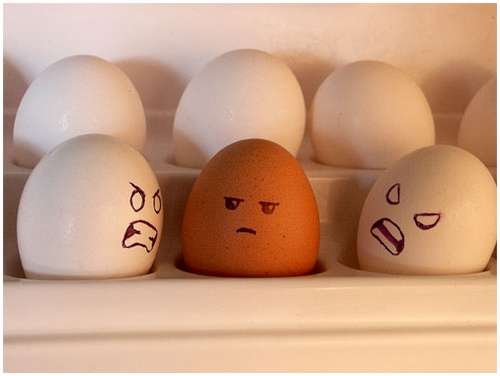Seriously, I won't accept what I was taught in kindergarten that I now know to be false: the nice English "settlers" (read: oppressors) had lunch with the Indians (read: the guys who taught the incompetent intruders how to live on the land they would later take by force, all in the name of liberty and freedom). Sorry, a bunch of white males denying rights to women and non-whites, socially stigmatizing non-Christians, and displacing indigenous people more and more as time went on, is not what passes for me as a national pastime. So, as an American, the day doesn't mean terribly much other than a reminder of who we (as an institutional nation) really are.
So, personally, what is it? I suppose answering for everyone is out of the question. But I think I can answer what it is as a functional definition: a way to keep the American worker satisfied with his/her lot in life by giving up a day of the month for family gatherings. For most people, whether you believe in the sanctity of Thanksgiving or see the marketing as an outdated way of just getting 21st century families to get together, it's a pretty solid deal. If you're a full-time worker, you get a paid day off in many cases. If you're a student, no school for a while. For me, as a student, it's a reminder that the semester is almost over.
In the end, I would say it's a day for me to just try and find the one person (or people) that is/are most accessibly important to me and try to enjoy time with them as well as I can. We're all strapped these days. Many of us question our place in our jobs, our future (as workers, students, etc.), and our lives in general. Where are we all headed in this quickly changing society? What validity will I have in it in 5-10 years? Will I fulfill my dreams and goals? Are they all meant to be achieved? If not, how do I know which ones to feel okay or bad about? Despite these questions, many of us know of at least one or more people we can turn to and cherish on this day. And for those who don't, maybe we can put ourselves to the side for a moment to think about them. In this 'me-centric' society, we tend to forget about what that type of message sends to those who don't have a lot of 'me' to feel good about. I think that one fact, more than any other, makes me feel the worst when I see how commercialized and fragmented our holidays, once sprinkled with some meaning perhaps, are becoming.
In the end, just value what you have. Who cares if you don't get everything you want this year? Who cares if you don't meet your goal you set 100% this year? We should be so lucky that we even have years to look forward to setting goals, achieving them, resketching them, or scrapping them, when some people only have goals of living to see the next day. Those people, more than any, only have their loved ones to value and get them through year in and out. Do you think we as a society keep that same level of focus on those we love the most?
Have a nice Thanksgiving.

